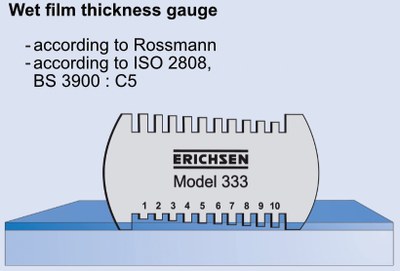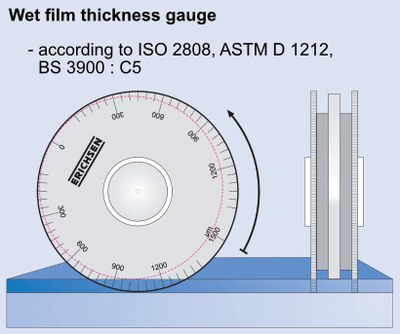Wet film and dry film thickness measurement
Mechanical coating thickness measurement
Coating thickness measurements are indispensable when processing and testing paints and coatings. The layer thickness is one of the decisive factors for the appearance, protective effect and durability of the coating.
A layer that is too thin gives insufficient protection and low covering power. Therefore, minimum coating thicknesses are required in technical delivery conditions and their compliance and uniformity must be constantly monitored.
On the other hand, a layer that is too thick means corresponding additional consumption of coating material and thus an unnecessary increase in costs. In addition, thicker layers do not always have better properties, e.g. in terms of drying time.
Physical and mechanical properties of coatings are directly dependent on the coating thickness. Therefore, if one wants to test comparably and reproducibly, this must be done with the same coating thicknesses.
Advantages of mechanical coating thickness gauges
- Very handy, easily transportable and simple to operate, even by assistants
- Robust construction, direct reading
- Purely mechanical measuring principle
- Measurements are possible on any surface, whether glass, wood, metal or plastic
- Mechanical coating thickness gauges are very inexpensive compared to other systems
Wet film thickness gauges
Wet film thickness gauges are used to check freshly applied coatings and allow the calculation of the remaining dry film thickness. If deviations from the nominal value are detected, corrections can be made immediately.
Model 333 u. 433
Dry film thickness gauge
Dry film thickness gauges are used to check finished coatings.
Model 233

- according to Rossmann
- ISO 2808
- ASTM D 1005
- BS 3900 : C5
Model 296

- according to Rossmann
- ISO 2808
- ASTM D 1005
- BS 3900 : C5


